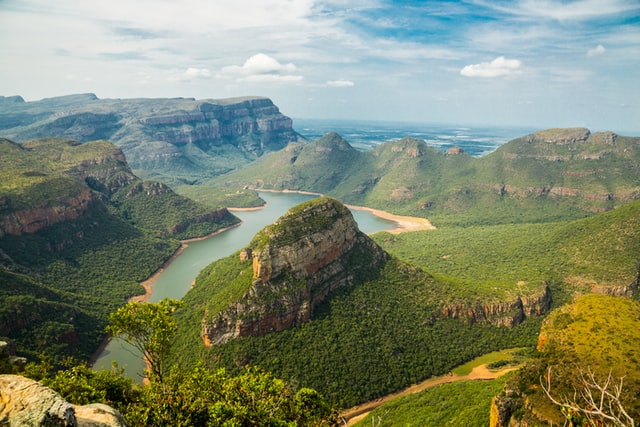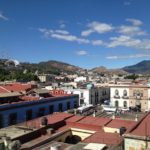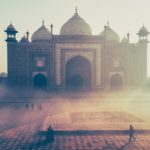When They Go Low, We Go High

To criticize an entire country (e.g El Salvador, Haiti) or an entire continent (Africa) by describing them with a derogatory remark is to fail to grasp reality. I decided that instead of responding with anger toward the recent comments made by the US President, I would write a piece exemplifying the wise words of Michelle Obama: “When they go low, we go high”, highlighting some personal experiences of living and traveling in Africa.
When travelers think of Africa, certain images to come to mind. Yes, there are safaris where you can traverse the expansive savannah and spot lions hunting in the equatorial sun, leopards lazing on high tree branches or dik-diks, the smallest of the antelopes, zig-zagging their way through the bush. Yes, you have a plethora of safari stay options, ranging from tent camping to luxury all-inclusive lodges where you can feast on gourmet food and experience the local culture, such as the Maasai in Kenya.
And yes, you can stroll on sun-drenched beaches along the continental coastlines, free from commercial build-up. You can stroll through the open-air night market of Zanzibar’s Forodhani Gardens and eat tandoori lobster overlooking the Indian Ocean. You can snorkel in crystal clear water and count the brightly colored starfish in the sand.
In fact, you can wander the alleys of Lamu in Kenya, sail through the archipelago in a dhow, listen to taarab music on the town square while the smell of seafood curry emanates from the nearby market.
It is my hope that fellow Americans continue to “go high” by being curious of the diversity around us; learning from those from other countries; traveling responsibly, ethically and without prejudice.
Yes, you can hike into deep gorges and caves of the Great Rift Valley. You can trek for days through the rugged mountains of Gheralta and visit the centuries-old hand-carved churches of the Ethiopian Orthodox Church, steeped in rich history. You can traverse to the top of the famous Table Mountain that overlooks Cape Town and its seascape.
For the adventuresome, you can take a camel safari into the desert and drink camel milk, while being guided by nomads with inspiring stories. You can admire Swahili-Arab architecture by visiting medieval settlements sites along the Indian Ocean coast, such as Gedi ruins.
Yes, you can dine finely in the cosmopolitan cities such as Maputo after a long day exploring nearby Catembe Island. You can enjoy vibrant music scenes and dance to local and international tunes in Dakar into the night. If you are lucky, you can see live performances by some of the musical legends of the continent. In Stellenbosch, South Africa, you can tour the rolling hills and mountains while tasting local varieties of wine at elegant wineries.
Yes, you visit some of the UNESCO Heritage sites: the immense Victoria falls, which cascade onto the Zambezi River, also known as Mosi-ua-Tunya (the smoke which thunders), or the Island of Gorée, the infamous slave-trading center, to name only two. You can quench your adventuresome spirit and skydive or zip-line over the Zambezi River. For the serious athlete, you can run a marathon through in the bush of a National Park, while gazelle, zebras and other wildlife roam about.
You will experience, in the true sense, the proverb, “It takes a village to raise a child”.
These are some of the travel destinations you will find; however, there is so much more in Africa.
You will also find that in many cities and towns people speak multiple languages fluently; languages from their mothers and father’s ethnic background, from the colonizing country, and often English as well. I asked a friend how he came to be fluent in six different languages. He said when he was young he had friends from diverse backgrounds and learned their languages so he could play with them.
You will experience, in the true sense, the proverb, “It takes a village to raise a child”. Once, while taking public transport in Entebbe, a mother got on the minibus with her child, her arms full of heavy bags. She confidently handed her child to a pair of willing hands on the bus, so that she could board the bus and pay. The child was eventually handed to me, several rows back from the mother, where she slept happily in my lap.
You will find people working hard and long hours, rising at 4am to get to work in time to avoid traffic, so that they can support their families.
You will find people working hard and long hours, rising at 4am to get to work in time to avoid traffic, so that they can support their families. “Family” often includes not just close members, but in-laws, great uncles, cousins several times removed, and so on. The sense of family and family responsibility is both expansive and noble.
You will find advanced telecommunication systems in most major cities and in remote dusty villages. For example, using your cell phone, you can easily pay for a meal, pay the street vendor who just mended your shoe, or send money to a relative who lives five hours north by road. You can send phone credit to anyone with a couple of clicks of your phone.
You will find hubs of entrepreneurs and artisans, young and old, creating solutions to problems in resourceful ways (the magnitude of innovations is too large to do justice in this article). Discarded items are often recycled for other use, such as repurposing a bike wheel and pedal to make it a portable and efficient kitchen knife sharpener. In a technology hub in Lomé, old electronics are used to make 3D printers, for example. Manual skills are passed down from generation to generation; the art of creating intricately hand-carved doors is taught in a workhouse by the elders of a coastal community.
In Africa, you will find kindness, compassion and strength in many corners, remote and far.
You will find countless rich cultures and religions within a geographic area. Standing in line in a busy business district shop, one can hear people speaking Ki-Swahili, various Indian languages, English and other local languages, all within earshot. This is a norm. From my home in Nairobi, one could hear both the mosque’s call to prayer and church bells ringing at the same time, summoning prayer goers.
In Africa, you will find kindness, compassion and strength in many corners, remote and far.
It is my hope that fellow Americans, despite such negative language from the US President, continue to “go high” by being curious of the diversity around us; learning from those from other countries; traveling responsibly, ethically and without prejudice; seeing beyond stereotypes and negative narratives; befriending people in our communities whose first language is not English; and standing against hatred and discrimination at home and abroad.








